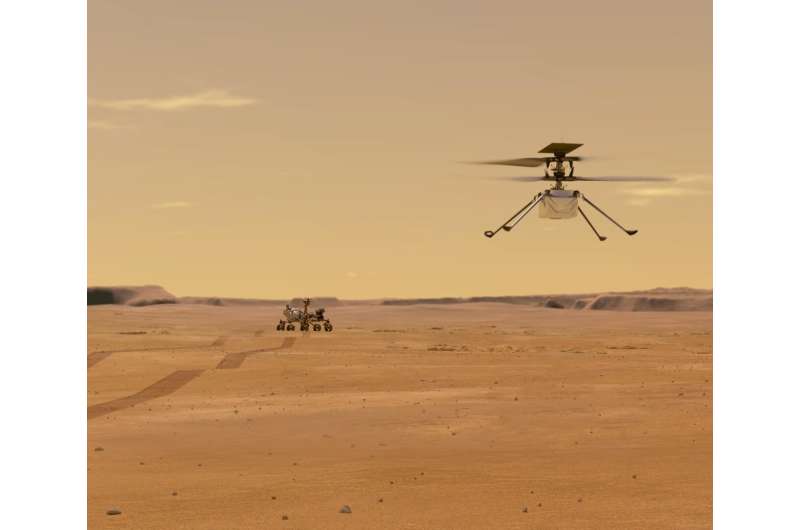Exploring the soundscapes of other planets

You may know how other planets look, like the rust orange, dusty surface of Mars or the vibrant teal of Uranus. But what do those planets sound like?
Timothy G. Leighton from the University of Southampton in the U.K. designed a software program that produces extraterrestrial environmental sounds and predicts how human voices might change in distant worlds. He demonstrated his work at the 184th Meeting of the Acoustical Society of America on Thursday, May 11.
The presentation is part of a special session that brings together the acoustics and planetary science communities. Acoustical studies became essential during the Huygens lander’s descent into Titan’s atmosphere in 2005 and in the more recent Mars InSight and Mars 2020 missions. These successful missions carried customized active and passive acoustic sensors operating over a wide spectrum, from very low frequencies (infrasound, below the human hearing threshold) to ultrasound (above human hearing).
“For decades, we have sent cameras to other planets in our solar system and learned a great deal from them. However, we never really heard what another planet sounded like until the very recent Mars Perseverance mission,” said Leighton.
Scientists can harness sound on other worlds to learn about properties that might otherwise require a lot of expensive equipment, like the chemical composition of rocks, how atmospheric temperature changes, or the roughness of the ground.
Extraterrestrial sounds could also be used in the search for life. At first glance, Jupiter’s moon Europa may seem a hostile environment, but below its shell of ice lies a potentially life-sustaining ocean.
“The idea of sending a probe on a seven-year trip through space, then drilling or melting to the seabed, poses mind-boggling challenges in terms of finance and technology. The ocean on Europa is 100 times deeper than Earth’s Arctic Ocean, and the ice cap is roughly 1,000 times thicker,” said Leighton. “However, instead of sending a physical probe, we could let sound waves travel to the seabed and back and do our exploring for us.”
Planets’ unique atmospheres impact sound speed and absorption. For example, the thin, carbon dioxide-rich Martian atmosphere absorbs more sound than Earth’s, so distant noises appear fainter. Anticipating how sound travels is important for designing and calibrating equipment like microphones and speakers.
Hearing the sound from other planets is beneficial not just for scientific purposes, but also for entertainment. Science-fiction films contain vivid imagery to mimic the look of other worlds but often lack the immersive quality of how those worlds would sound.
Leighton’s software showcases predictions of the sounds of other worlds at planetariums and museums. In the case of Mars, it includes actual sounds thanks to the U.S./European Perseverance team and China’s Zhurong mission.
The special session, chaired by Leighton and Andi Petculescu, is the third forum on acoustics in planetary science organized at a meeting of the Acoustical Society of America.
“The success of the first two ASA special sessions on this subject has led to quite a few collaborations between the two communities, a trend that we hope will carry on,” said Petculescu.
Citation:
Exploring the soundscapes of other planets (2023, May 11)
retrieved 11 May 2023
from https://phys.org/news/2023-05-exploring-soundscapes-planets.html
This document is subject to copyright. Apart from any fair dealing for the purpose of private study or research, no
part may be reproduced without the written permission. The content is provided for information purposes only.
For all the latest Science News Click Here
For the latest news and updates, follow us on Google News.

